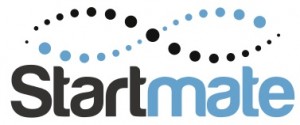 Last year, a group of Australian startup veterans and executives created Startmate, a seed fund and incubator designed to provide small, early-stage investment and hands-on mentoring to local startups.
Last year, a group of Australian startup veterans and executives created Startmate, a seed fund and incubator designed to provide small, early-stage investment and hands-on mentoring to local startups.
Bringing the Y Combinator model to Australia, Startmate chooses 5 startups to participate in its 3-month incubator program. It then seeds those 5 companies with $25,000 and offers them access to its impressive list of mentors, which includes Mike Cannon-Brookes and Scott Farquhar, the founders of the software company Atlassian that last year raised $60 million in funding from Accel Partners.
Startmate’s 3-month program includes two demo days, one in Sydney and one in Silicon Valley, and culminates in a two-week trip to Silicon Valley, in which the startups are introduced to American investors.
The startups are currently in the midst of their American tour and are slated to stay in Silicon Valley through March 30th, though some have elected to prolong their stay, said Startmate co-founder Niki Scevak. Silicon Valley tends to have that effect.
For those interested in meeting the Aussie startups, they will be attending a panel hosted by StartMate mentor and VP of Marketing at stylepage.com Julia French and serial Aussie entrepreneur Martin Wells on Monday night at Pier 38 in San Francisco. For tickets to the event, click here. The panel is free and begins at 7pm.
So, here, in no particular order, is a look at the five graduates of Startmate’s inaugural batch:
Thus, Chorus attempts to draw meaning from the 10 billion emails that are sent to customer support departments every year. These departments are bombarded by an avalanche every day, and all they can do is try replying as fast as possible, without any intelligence into which issues are the most important, what the changing trends are, and how customers’ relationship with a company changes over time.
Chorus lets companies reply to the angriest emails first, decrease risk of bad PR on social networks, and predict future trends and sentiment. The goal: more customer love.
 BugHerd: Aimed at designers and developers alike, BugHerd is a bug tracker that overlays on a webpage, allowing the entire team to log and manage bugs visually, without leaving the page they’re working on. Users can flag and annotate an HTML element on their website and share that issue with the rest of the team.
BugHerd: Aimed at designers and developers alike, BugHerd is a bug tracker that overlays on a webpage, allowing the entire team to log and manage bugs visually, without leaving the page they’re working on. Users can flag and annotate an HTML element on their website and share that issue with the rest of the team.
A simple change request usually requires the user to take a screen shot, mark out the problem area, write a description, upload the image, and fill out a form, etc — a time-consuming and annoying process for most bug trackers. Most bug-tracking tools out there are, generally speaking, aimed at engineers who want to know every little detail, so BugHerd seeks to provide a tool that works for both non-technical and technical users alike. Embedding directly into your website, BugHerd flags and manages bugs visually without the need to fill out lengthy forms or annotate screengrabs, logging them in as little as 5 seconds. BugHerd is currently in open beta.
 Noosbox: Noosbox is an add-on for Gmail that helps you share and search emails with your work colleagues. Once installed, every conversation has a “share” button which will make that important conversation visible to your coworkers, as well as making the information in it searchable and discoverable. Teams using Noosbox can quickly build up a powerful shared feed of information about the conversations, contacts, organisations they deal with every day with very little effort.
Noosbox: Noosbox is an add-on for Gmail that helps you share and search emails with your work colleagues. Once installed, every conversation has a “share” button which will make that important conversation visible to your coworkers, as well as making the information in it searchable and discoverable. Teams using Noosbox can quickly build up a powerful shared feed of information about the conversations, contacts, organisations they deal with every day with very little effort.
Co-founders Andrew Jessup, Phil Lee and Tim Lucas said that Noosbox rose out of their frustration with the fact that, no matter how tech-savvy their past employers were and no matter how many organization tools they used, all of the important information they needed to keep track of just ended up in their inboxes. So, rather than trying to replace email with some other tool, Noosebox sets out simply to extend it. The startup is currently in private beta.
![]() Grabble: A free Android and iPhone app, Grabble allows you to record and store your receipts on your phone so that you don’t have to keep track of those pesky paper copies. With Grabble, you can capture your paper receipts using QR codes or grab your receipt directly from a checkout line. Once the transaction is complete, you can choose to print, or not, and then quickly export to your financial applications. Or, if you want to return an item, you can show the salesperson the receipt and authorize the return there in person.
Grabble: A free Android and iPhone app, Grabble allows you to record and store your receipts on your phone so that you don’t have to keep track of those pesky paper copies. With Grabble, you can capture your paper receipts using QR codes or grab your receipt directly from a checkout line. Once the transaction is complete, you can choose to print, or not, and then quickly export to your financial applications. Or, if you want to return an item, you can show the salesperson the receipt and authorize the return there in person.
 IRL Gaming: IRL Gaming makes location based, social games for mobile and web-enabled devices. The company’s first app, “Zombies: In Real Life” is a location-based survival game for the iPhone that uses the real-world as the playing surface. In Zombies: IRL, your town is a horror movie, and you and your friends can compete or cooperate to save your town from the wrestless zombie hordes.
IRL Gaming: IRL Gaming makes location based, social games for mobile and web-enabled devices. The company’s first app, “Zombies: In Real Life” is a location-based survival game for the iPhone that uses the real-world as the playing surface. In Zombies: IRL, your town is a horror movie, and you and your friends can compete or cooperate to save your town from the wrestless zombie hordes.
Via the location-based app, players enter real-world venues to battle the undead, while seeking out food, weapons and medical supplies to help their friends survive. Gamers must fight to reclaim their neighborhood from the zombies, one infested venue at a time.